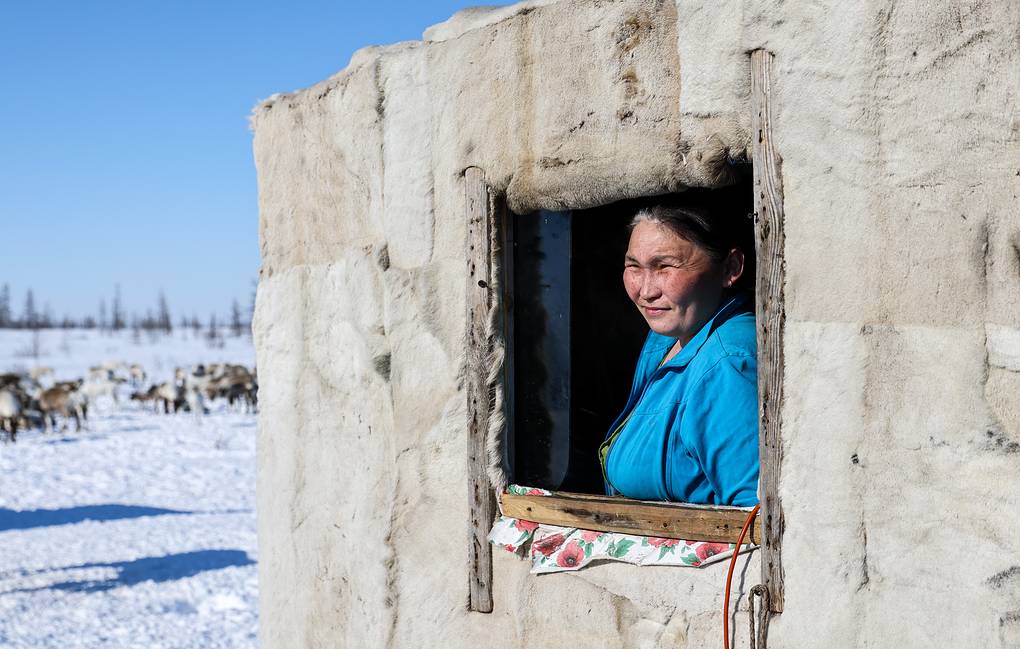YAKUTSK, August 20. The poverty among the Arctic communities in Russia, the US and Canada may be explained by the high birth rates, big numbers of dependents and high rates of everyday expenses, Daryana Maximova of the North-Eastern Federal University (NEFU) and the Academy of Sciences’ Institute of the US and Canada told TASS.
A team of experts from NEFU jointly with scientists from Canada’s University of Manitoba and the US University of Alaska compared sources of revenues and studied poverty in traditional communities, living in the north of Russia, the US and Canada. The studies were financed by a grant of 1.3 million rubles ($17,500) from the Russian Foundation for Basic Research.
“We have analyzed how poor people in Yakutia, Manitoba and Alaska live,” Maximova said. “Using the national statistics and analytical data, we compared poverty conditions the said regions. Among the reasons could be high birth rates, big numbers of retirees and dependents, high levels of everyday expenses, insufficient budget payments to raise the incomes of the poor and many others.”
The scientific results may be used for recommendations on how to harmonize relations between investors and locals in the Arctic, how to have improve the social responsibility of corporates during major mining or infrastructure projects in traditional territories of the North’s communities, the Russian expert said. Additionally, the results may be useful in making more efficient the social benefits for the people living in the North.
The studies show that the poverty level is not related directly to the regional sectors. The scientists pointed to the importance of corporate social policies. “A certain role in a rather low poverty rate in Alaska is played by the natural resource rent payments from mining companies, which could form the basis for experiments to introduce unconditional basic income for indigenous communities of the North,” the scientist said.
Comparative studies in Arctic
According to Maximova, the Arctic Region is considered a platform for new and, possibly, soon industrial and humanitarian expansion. “Though in the global terms the North is not a competitor for the South, the quick growth of the Earth’s population, the expected depletion of food resources, as well as development of life support technologies, which make available basic services and autonomous existence in harsh climate conditions – will stimulate further transformation of settlement systems,” she told TASS.
Regardless of different political systems and economies, the northern communities have a lot in common. Hence of special interest, the expert continued, would be international and interdisciplinary studies, including in sociology.
“We speak about the harsh climate conditions, logistics problems and isolation of settlements,” she explained. “These are conditions for special economic approaches in those regions. The identification of common problems and national peculiarities of the poverty development, structure and levels, different approaches to solving the issue of social inequality will be instruments to offer effective mechanisms for social support and will favor sustainable development of the Arctic’s indigenous peoples.”
Overcoming the poverty is a global problem, and a primary task among the UN’s 17 Sustainable Development Goals, she added. “The studies may continue in the form of more fundamental research, in discussions at global forums, including at the Northern Sustainable Development Forum, at the forums in the framework of the Arctic Council, which Russia chairs now.”
Arctic Council
The Arctic Council is a leading intergovernmental forum for promoting cooperation, coordination and interaction between the Arctic’s states, indigenous peoples and residents with the purpose of common solutions to “Arctic” issues, including sustainable development and environmental protection in the region. The organization’s working groups regularly produce comprehensive advanced assessment studies on environmental and social problems. Russia chairs the Arctic Council 2021 to 2023.
Russia’s President Vladimir Putin said earlier “during Russia’s chairmanship of the Council, we are aiming to comprehensively improve the effectiveness of this important multilateral mechanism in every possible way and to implement promising and mutually beneficial joint projects.” The president stressed, Russia traditionally pays special attention to the development of northern areas.


Comment here